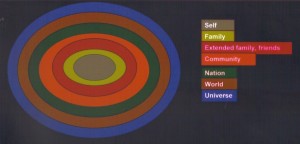
“A happy life must be to a great extent a quiet life, for it is only in an atmosphere of quiet that true joy dare live.” – Bertrand Russell
What do Mahatma Gandhi, Albert Einstein, Warren Buffet, Bill Gates, Abraham Lincoln, Julia Roberts, J K Rowling and Clint Eastwood have in common?
Yes, they are all well-known introverts. While varied other personal traits may have contributed towards their becoming masters of their own fields, being an introvert was surely one of them. Reading a fascinating book called Quiet, on the power of introverts by Susan Cain, I was inspired to write this post.
Clarifying Introversion and Extroversion
Usually, people who are more talkative, social and outgoing are referred to as extroverts while quiet and shy types get branded as introverts. However, much of psychology research on personality types relates the idea of extroversion and introversion to two other factors.
The first, popularized by Carl Jung, founder of analytical psychology, bases the distinction between extroversion and introversion on an individual’s attitude-type characterization – extroverts are characterized by their greater interest in the external world, while the introverts in their inner, emotional-mental, world.
The second is based on our orientation for how we spend leisure time, de-stress and resolve issues. Extroverts prefer being with other people – it relaxes and energizes them; introverts prefer being alone – in fact, they are commonly uncomfortable spending significant time with others. Given a choice, an extrovert would love to join a party and an introvert read a book or the like.
Most people possess a combination of these traits – although one of the two may be more dominant, and perhaps active more frequently, than the other. Further, the trait of shyness or boldness might be an independent factor present in either of the two personality types – so you could have a shy extrovert (comedian Chris Rock) and a bold introvert (Mahatma Gandhi).
Misplaced Overemphasis on Extroversion
Propelled by a growing sense of individuality, rapid…

















